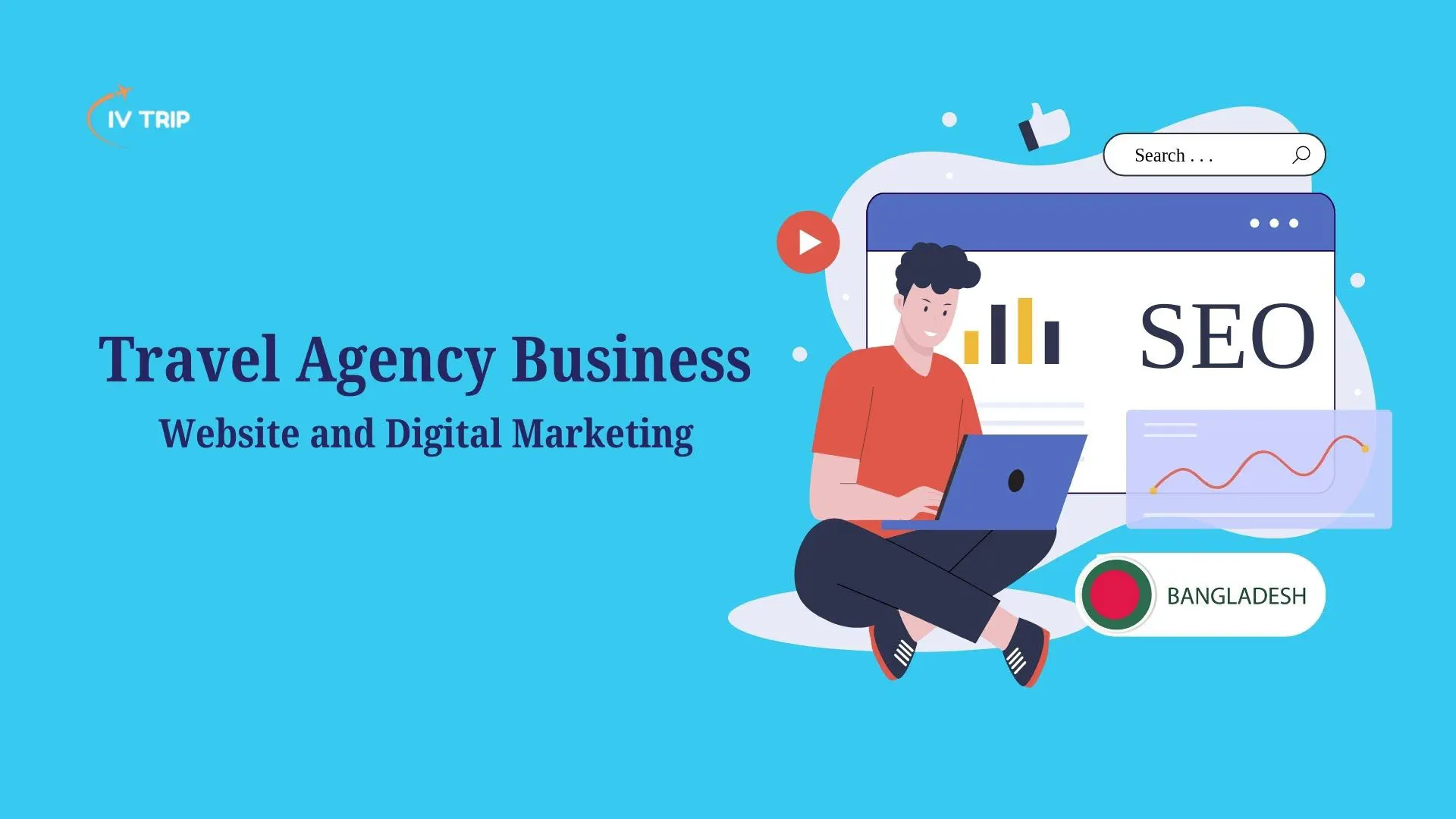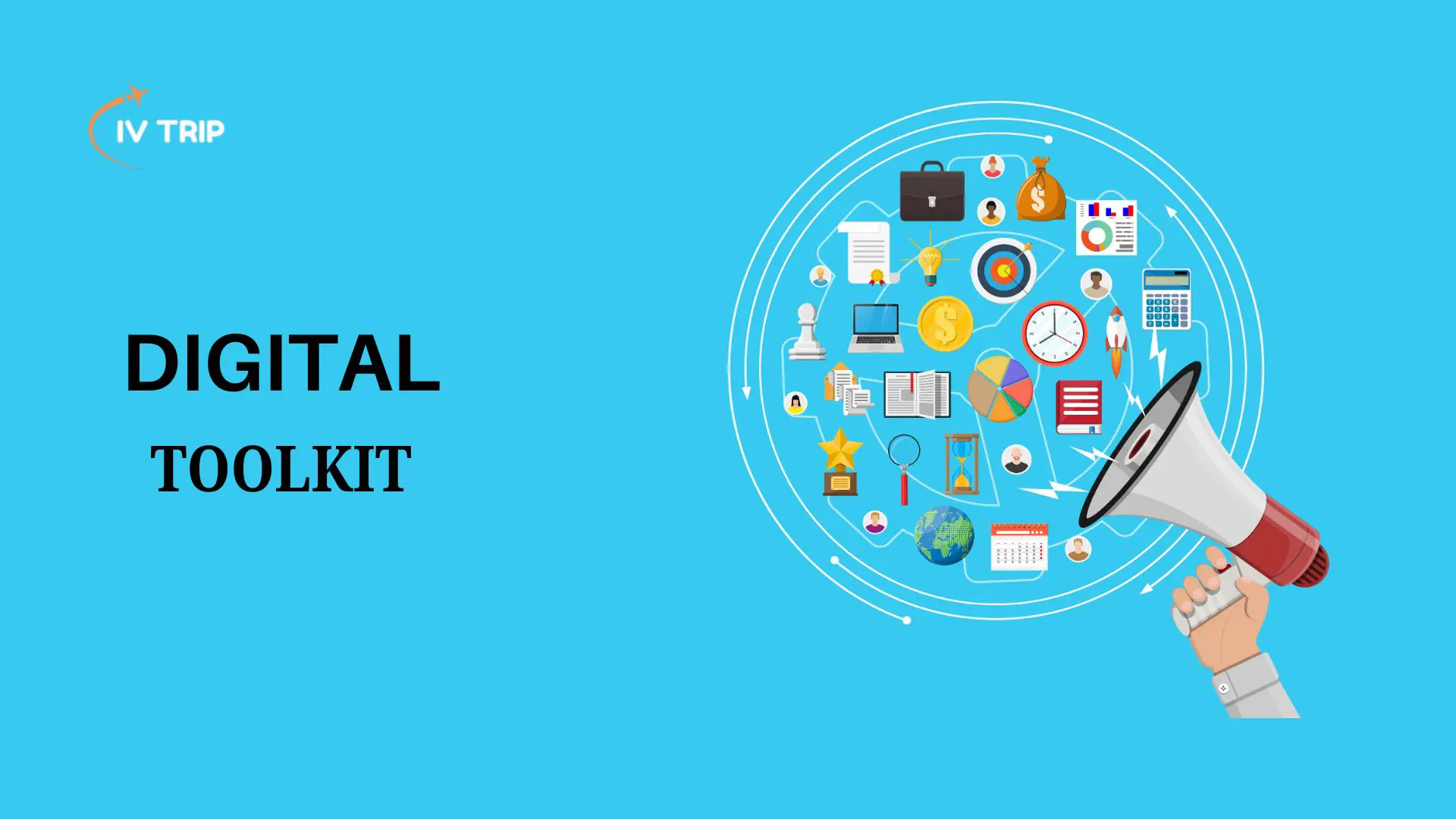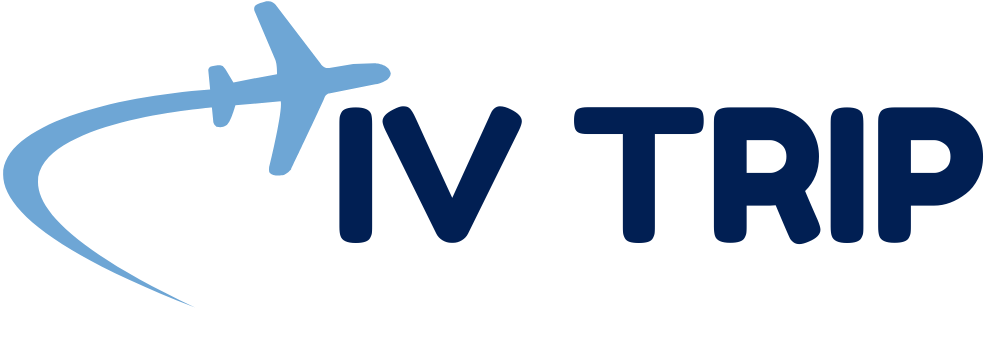Travel Agency SEO & Digital Marketing Tips to Boost Bookings

Travel agencies today thrive on online visibility and engagement. When travelers plan trips, search engines are often their first stop. This means mastering Travel Agency SEO (Search Engine Optimization) and complementary digital marketing is essential to capture bookings. By optimizing your site for relevant travel keywords (like popular destinations or packages) and using savvy marketing channels, you can dramatically increase your reach.
In fact, over 70% of travelers prefer booking online, making a strong digital strategy a must-have for travel businesses. Optimizing for travel-specific queries helps agencies rank higher when potential clients search for trips. For example, a search for “Dhaka to Cox’s Bazar weekend trip” or “best tour packages in Bangladesh” should lead directly to your agency’s site. By focusing on the right Travel Agency SEO tactics and digital marketing channels, you ensure your agency is visible, trusted, and bookable.
Why Travel Agency SEO & Digital Marketing Matter
- Search Is Key: Most modern travelers start their journey online, and a majority of bookings come from search engines. As Implevista’s guide notes, travelers tend to “contact the top options” they find on Google or Bing. If your agency isn’t visible on page 1, you miss out.
- Cost-Effective Growth: Unlike paid ads (which stop when budgets run out), good SEO delivers lasting traffic. Implevista explains that SEO can continue attracting visitors without paying for every click. This long-term growth means more bookings over time and a better return on investment.
- Builds Trust & Credibility: High organic rankings signal authority. As Implevista notes, achieving top search positions “builds trust” — users associate first-page listings with reliable, expert agencies. This trust translates to higher conversion rates once prospects land on your site.
Beyond SEO, digital marketing channels amplify these benefits. Engaging travelers on social media, email, and through content further cements your brand. For instance, about 39% of travelers say they get inspiration from social media, so an active Instagram or Facebook presence can drive new leads. Surveys also show travelers want personalized itineraries and unique experiences. By using data and digital tools, your agency can deliver those, standing out from competitors.

Keyword Strategy for Travel Agency SEO
Effective Travel Agency SEO starts with the right keywords. Follow these steps:
- Brainstorm Seed Keywords: Start with broad phrases related to your offerings (e.g. “adventure travel Bangladesh,” “beach honeymoon packages”). Use tools like Google Keyword Planner, Ubersuggest, or SEMrush to see what travelers are searching. For example, Implevista suggests phrases like “Bangladesh tours” or “adventure travel”.
- Target Keywords Wisely: Incorporate a mix of primary keywords (like travel agency SEO, “Dhaka travel agent”), secondary phrases (e.g. “tour packages Bangladesh,” “digital marketing for tourism”), and long-tail keywords. Long-tail terms (“family tour Sunderbans,” “eco-tourism packages in Sylhet”) are often less competitive and capture specific user intent.
- Optimize for Voice & Local Queries: With more travelers using voice assistants, include question-style keywords (e.g. “What are the best tour packages?”). Also, add geo-targeted keywords (like “tour agency in [City Name]”). For instance, Implevista’s tourism marketing guide advises optimizing for searches like “best travel agencies in Bangladesh” to capture local interest.
- Natural Placement: Once you have your keyword list, weave them naturally into page titles, headings, content, image alt text, and URLs. Avoid keyword stuffing. Implevista cautions to focus on clarity for users and search engines.
On-Page SEO Tips for Travel Websites
On-page SEO makes your content easy for travelers and Google to understand. Key tactics include:
- Engaging Titles & Meta Descriptions: Craft unique, descriptive titles and meta tags for each page. For example, a blog post on local tours might be “Top 10 Sylhet Day Trips | [Agency Name].” Include main keywords without overstuffing. Keep them compelling to increase click-through rates.
- Structured Content: Use headings (H1, H2, H3) to break up text logically. Short paragraphs (2–4 sentences) improve mobile readability. Lists and bullet points (like this one) make information scannable. This also helps Google parse your content.
- Image Optimization: Name image files descriptively (e.g., cox-bazar-beach-tour.jpg) and add SEO-friendly alt text. For instance, use alt phrases like “family on Cox’s Bazar beach tour by a travel agency.” Implevista emphasizes using alt tags and compressing images to speed up pages.
- Strong CTAs: Encourage action with clear calls-to-action (“Book Now,” “Contact Agent,” “Get a Quote”). This guides visitors toward booking steps. Also, interlink relevant pages (like linking a tour page to a related travel blog) to improve navigation and SEO.
Local SEO for Travel Agencies
Targeting local travelers is crucial, especially for agencies operating in specific cities or regions. Do the following:
- Claim and Optimize Google Business Profile: Ensure your agency’s Google Business listing is claimed, verified, and fully completed. Include accurate NAP info (Name, Address, Phone), business hours, and service descriptions. This makes your agency appear on Google Maps and local searches.
- Encourage Customer Reviews: High-quality reviews boost both SEO and trust. Prompt satisfied customers to leave reviews on Google and TripAdvisor, and respond professionally to feedback. Implevista notes that managing reviews not only improves rankings but also builds trust with new clients.
- Local Directory Listings: List your agency on local tourism and business directories (TripAdvisor, BD YellowPages, Google Maps, etc.). Consistent listings reinforce your presence. Implevista advises ensuring your business info is accurate across all platforms.
- City-Specific Content: Create localized content. For example, blog about “Top Things to Do in Chittagong” or “City Tours from Dhaka.” This captures “near me” searches. Implevista’s travel SEO tips recommend blogs on local attractions to capture hyper-local traffic.
Local SEO is powerful: as one Implevista page points out, “Local SEO (Search Engine Optimization) is the key to making your business easily discoverable by potential customers in your geographical area”. By optimizing for local queries, travel agencies can dominate nearby searches and attract clients ready to book.
Technical SEO and Performance
Beyond content, your website’s health impacts rankings and user experience. Focus on:
- Site Speed: Optimize loading time (aim for under 3 seconds). Compress images, enable browser caching, and minimize scripts and plugins. Remember, a slow site frustrates users and search engines.
- Mobile Responsiveness: Ensure your site looks and works great on all devices. With many travelers booking on phones, Google now indexes mobile sites first. Implevista’s best practices stress responsive design for every device.
- Secure HTTPS: Enable SSL (HTTPS) site-wide. Google favors secure sites, and visitors trust them more.
- Clean Structure & Crawlability: Use a clear site structure and internal linking so search bots can crawl every important page. Submit an XML sitemap to Google Search Console. Fix broken links and use 301 redirects for removed pages to preserve link equity.
- Schema Markup: Add structured data (e.g. LocalBusiness, TouristAttraction, Hotel, FAQPage) to help search engines understand your content. For instance, marking up your hotel or tour pages can make your agency appear in rich search results. Implevista highlights schema as part of both technical SEO and voice search readiness.
Ensuring technical excellence boosts Google’s confidence and makes it easier for travelers to engage with your site. Remember, flawless performance (good Core Web Vitals) and secure design directly support all SEO and digital marketing efforts.
Content Marketing for Travel Agencies
Quality content drives engagement and SEO simultaneously. Strategies include:
- Travel Blogs and Guides: Write articles that solve real traveler needs. Examples: “Ultimate Itinerary for Cox’s Bazar,” or “How to Plan an Adventure Trip to the Sundarbans.” Implevista stresses writing helpful, trustworthy content, as Google rewards expertise. Use storytelling and vivid descriptions to immerse readers. Each blog should target specific keywords (e.g. “Dhaka day tours,” “family-friendly resorts in Sylhet”) to attract organic traffic.
- Visual Content (Video & Infographics): Travelers love visuals. Create destination videos, photo galleries, and infographics about trip tips. Short drone videos or Instagram Reels can showcase experiences and spark wanderlust. Infographics (e.g., “Top 5 Eco-Tours”) are shareable and can earn backlinks. Ensure all visuals are optimized (alt text, compressed) for SEO.
- User-Generated Content (UGC): Feature travelers’ photos and testimonials on your site and social channels. This not only builds trust but also adds fresh, authentic content regularly. For example, encourage customers to share their travel videos – these can be reposted (with permission) as part of your content strategy.
- Content Distribution: Share all content across channels. Implevista notes that great content should be promoted via social media, email newsletters, and partnerships. Email subscribers get exclusive tips; social followers see teasers linking back to your site. Consider collaborations (e.g., guest blogs on travel magazines) to further amplify reach.
By consistently publishing valuable content, you build SEO “juice” and position your agency as an authority. Remember Implevista’s advice: content marketing is about telling your brand’s story and providing value, not just selling.

Social Media Marketing for Travel Agencies
Social media platforms are vital to reach and engage travelers:
- Platform Selection: Focus on visually rich networks. Facebook and Instagram allow photo albums and Stories; TikTok and YouTube serve video content. Share destination highlights, behind-the-scenes (like tour preparations), or live Q&A sessions. For instance, post a short video tour of the Sundarbans or an Instagram Reel of a cultural festival.
- Community Engagement: Build a travel community. Run contests (photo caption contests or quiz giveaways), respond to comments, and encourage travelers to tag your agency in their posts. Implevista advises running photo contests and Q&As to boost engagement. A strong community (e.g., a Facebook group of past clients) keeps followers invested in your brand.
- Influencers & Partnerships: Partner with travel influencers and bloggers who appeal to your target market. They can showcase your packages to their followers. For example, a vlogger exploring Cox’s Bazar on your tour can create compelling content and include a link. Influencer endorsements build credibility and can attract new customers.
- Paid Social Ads: Use targeted ads on social platforms to reach specific audiences. Facebook/Instagram ads can target users by interests and demographics (e.g., recently engaged couples for honeymoon packages). Promote special deals (“Summer Sale – 15% off Goa Tours”) to entice bookings.
Engaging visuals and authentic stories on social media not only boosts brand awareness but also improves SEO indirectly (more branded searches, backlinks when content is shared). According to recent data, travel-related content on social media is exploding – about 39% of travelers say social media inspires their trip choices. Stay active and interactive to capture this opportunity.
Pay-Per-Click (PPC) Advertising
Paid ads complement SEO by driving immediate traffic:
- Search Ads (Google Ads): Bid on relevant keywords to appear at the top of search results. Use compelling ad copy with offers like “Book Your Dream Trip – 30% Off Early Deals.” Implevista’s guide on tourism recommends targeting high-intent keywords (e.g. “affordable honeymoon packages”) and running retargeting to catch people who visited but didn’t book.
- Budget Management: Start with a daily budget (e.g. $30–$50) and track ROI. Use long-tail keywords (“all-inclusive Bali vacation deals”) for higher relevance and lower cost-per-click. Continuously optimize: pause underperforming keywords and test new ad variations.
- Retargeting: Implement retargeting ads to re-engage visitors. For example, if someone viewed a Cox’s Bazar tour page but left, show them a targeted ad later. Retargeting often converts warm leads into bookings.
- Display & Social Ads: In addition to search, use display ads on travel blogs and social media. For instance, run Instagram story ads showcasing beautiful destinations. Facebook’s detailed targeting can reach lookalike audiences (people similar to your best customers).
PPC can give quick visibility for seasonal campaigns or new packages, but it should complement (not replace) your SEO efforts. Analyze paid campaign data (keywords, conversion) to inform organic strategy as well.
Email Marketing & Automation
Email remains a top channel for travel agencies:
- Build a Subscriber List: Collect emails via your site (sign-up forms) and social. Offer a free itinerary or travel checklist in exchange for an email address.
- Segment and Personalize: Divide subscribers into segments (e.g., families, honeymooners, solo travelers) and send tailored content. Implevista suggests campaigns like seasonal deals (“Winter Escape Packages”) or practical guides (e.g. “Guide to Summer Vacations in Bangladesh”).
- Automated Funnels: Set up automated sequences: welcome emails, abandoned cart reminders, or post-trip surveys. Personalized email content (“Your [Destination] trip is coming up! Here’s what to pack.”) can increase repeat bookings.
- Measure & Optimize: Track open and click-through rates. Test different subject lines and content (A/B testing). A well-optimized email strategy keeps travelers engaged and encourages referrals.
Email marketing, especially when integrated with your booking system or CRM (e.g., automatic follow-ups after inquiries), ensures your agency stays top-of-mind. Implevista notes email as a cost-effective way to nurture leads.
Analytics and Continuous Improvement
Track your progress and adapt:
- Use Analytics Tools: Implement Google Analytics and Google Search Console. Monitor key metrics: website sessions, bounce rate, conversion rate (bookings or inquiries), and which channels drive traffic. Implevista emphasizes advanced analytics in travel agencies to make data-driven decisions. For example, IV Trip’s travel agency software offers analytics on bookings and customer behavior – similarly, use your analytics to spot trends.
- Set Up Goals: Define goals (form submissions, demo requests, bookings) in Analytics. Check which pages and keywords are converting. If “Cox’s Bazar tours” pages are popular, expand on that topic.
- Regular Audits: Periodically audit your SEO (keyword rankings, site health) and content freshness. Update old content (e.g., change outdated prices or seasonality).
- Core Web Vitals: Use Google’s PageSpeed Insights or Core Web Vitals reports to improve load times. A smoother experience leads to higher engagement and better SEO.
Data-driven optimization is key. For example, if analytics show mobile users have high drop-off, improve your mobile design. Or if a certain blog gets a lot of traffic, create follow-up content. The insights will inform all your SEO and marketing choices.
Emerging Trends: Voice Search and AI
Stay ahead with these future-focused tactics:
- Voice Search Optimization: Travelers often use voice search (“near me” queries). About 76% of voice searches are location-related. Optimize content for conversational questions (“What is the weather in [Destination] this weekend?”). Use FAQ-style content and long-tail natural language phrases, as advised by Implevista. Ensure your Google Business Profile and local pages are filled with up-to-date info, since assistants rely on those.
- Featured Snippets & Schema: Structure content so it can rank in Position 0 (featured snippets). Use bullet lists and numbered steps for clarity. Implement schema markup like FAQPage or Speakable so smart assistants can pull answers. Implevista notes that voice assistants prefer brief, direct answers.
- AI & AEO (Answer Engine Optimization): Google’s AI-driven search (SGE) values expertise and trust. Follow E-A-T principles: publish authoritative guides, link to reputable sources, and encourage genuine reviews. Implevista highlights combining traditional SEO with AI optimization (using structured content and focus on trust) to future-proof your agency. For instance, using tools like Surfer SEO or ChatGPT can help identify important related topics to include in your pages.
- Mobile and Chatbots: With many on mobile, consider chatbots or 24/7 messaging for instant service (a tip from EngageBay’s travel guide). Also think about voice-activated booking services or apps that travelers can use hands-free.
By adapting to these trends, your travel agency will capture traffic from emerging channels, not just traditional web search. Ignoring these could let competitors get ahead.
In the competitive travel market, a robust SEO and digital marketing strategy is no longer optional – it’s essential. By targeting the right keywords, optimizing your site, and engaging travelers with high-quality content, your agency will earn better visibility and bookings. Use local SEO to dominate your region, harness social media and email to build relationships, and back everything with data-driven decisions.
For specialized support, consider leveraging IvTrip’s travel agency solutions. Whether it’s IVTrip’s management software (which includes SEO-ready features and analytics) or professional services like Local SEO and Content Marketing by Implevista, the right tools can streamline your efforts. Stay proactive: monitor emerging trends (voice search, AI) as detailed in IvTrip’s [Voice Search Optimization guide], and continuously refine your approach.
Ready to grow your travel business? Contact IvTrip today for a customized marketing review, or subscribe to the Implevista blog for ongoing tips. Check out our [SEO agency services] to get expert help and turn your website into a 24/7 booking generator!

FAQ
What is travel agency SEO and why is it important?
Travel agency SEO means optimizing a travel website so it ranks highly when people search for travel services. It involves using relevant keywords (like destinations and tour types), creating helpful content, and building quality backlinks. Good SEO is important because most travelers find agencies through search engines; being on page 1 builds trust and brings more organic bookings.
How can a travel agency improve its search rankings?
Improve rankings by researching keywords travelers use, optimizing on-page elements (titles, content, images), and producing quality content (blogs, guides) around travel topics. Also, claim your Google Business Profile, get listed in local directories, and earn customer reviews. Avoid black-hat tactics; instead focus on relevance, site speed, and mobile-friendliness.
What digital marketing channels work best for travel agencies?
Key channels include:
Content Marketing: Blogs, videos, and guides to attract and inform travelers.
Social Media: Engaging posts and ads on Instagram, TikTok, and Facebook to inspire bookings.
Email Marketing: Newsletters with seasonal deals and travel tips keeps customers coming back.
PPC Advertising: Search and social ads boost visibility quickly for targeted keywords.
How does local SEO help a travel agency?
Local SEO ensures your agency appears for nearby searches. By optimizing your Google Business Profile (accurate name, address, phone) and encouraging reviews, your agency shows up on Google Maps and local queries. Writing location-specific content (e.g., “Tourism in [City]”) captures local interest. Local SEO connects you with travelers searching “near me” and boosts credibility.
Why is high-quality content important for travel agencies?
High-quality content builds expertise and entices travelers. Informative travel blogs and guides answer real questions (itineraries, visa tips, packing lists). This not only boosts SEO (more keywords and longer time on site) but also establishes your agency as a helpful authority. Good content often leads to backlinks from other sites and social shares, further improving your visibility.
Should travel agencies invest in paid online advertising?
Yes, paid ads (Google Ads, Facebook Ads) complement SEO. PPC lets you target high-intent keywords instantly (like “cheap tours [Destination]”) and can drive immediate traffic. It’s particularly useful for promoting time-sensitive offers or new services. However, budget it wisely and monitor ROI. Over time, organic SEO will provide more sustainable traffic without ongoing ad costs.
What role do social media and influencers play in travel marketing?
Social media platforms let you inspire and engage audiences visually. Posting stunning travel photos, running contests, and sharing customer UGC can drive brand awareness. Influencers with travel followings can authentically promote your services to potential travelers. Both tactics build community and reach – and social signals may even indirectly boost SEO by increasing branded searches.
How can travel agencies measure the success of their digital marketing?
Use analytics tools like Google Analytics, Search Console, and reports from any booking software (e.g. IvTrip analytics). Track key metrics: website visitors, bounce rate, conversion rate (booking inquiries or sign-ups), and source of traffic. Monitor keyword rankings and engagement (time on site). Adjust strategies based on data – for example, if mobile users frequently drop off, improve mobile experience.
What common SEO mistakes should travel agencies avoid?
Avoid keyword stuffing and duplicate content – instead write naturally. Don’t ignore mobile optimization or site speed, as slow/uncrawlable sites hurt rankings. Also, failing to claim Google Business Profile or to encourage reviews is a missed local SEO opportunity. Finally, avoid building poor-quality backlinks; aim for relevant, authoritative links (guest posts or travel directories).
How can travel agencies stay current with SEO and digital trends?
Stay informed by following authoritative blogs (like Implevista’s blog) and SEO news sites. Experiment with emerging features: optimize for voice search (use question phrases), implement schema markup, and consider AI tools for research. Regularly update content to reflect new travel trends and Google updates. Continuously learning and adapting keeps your strategy effective.

